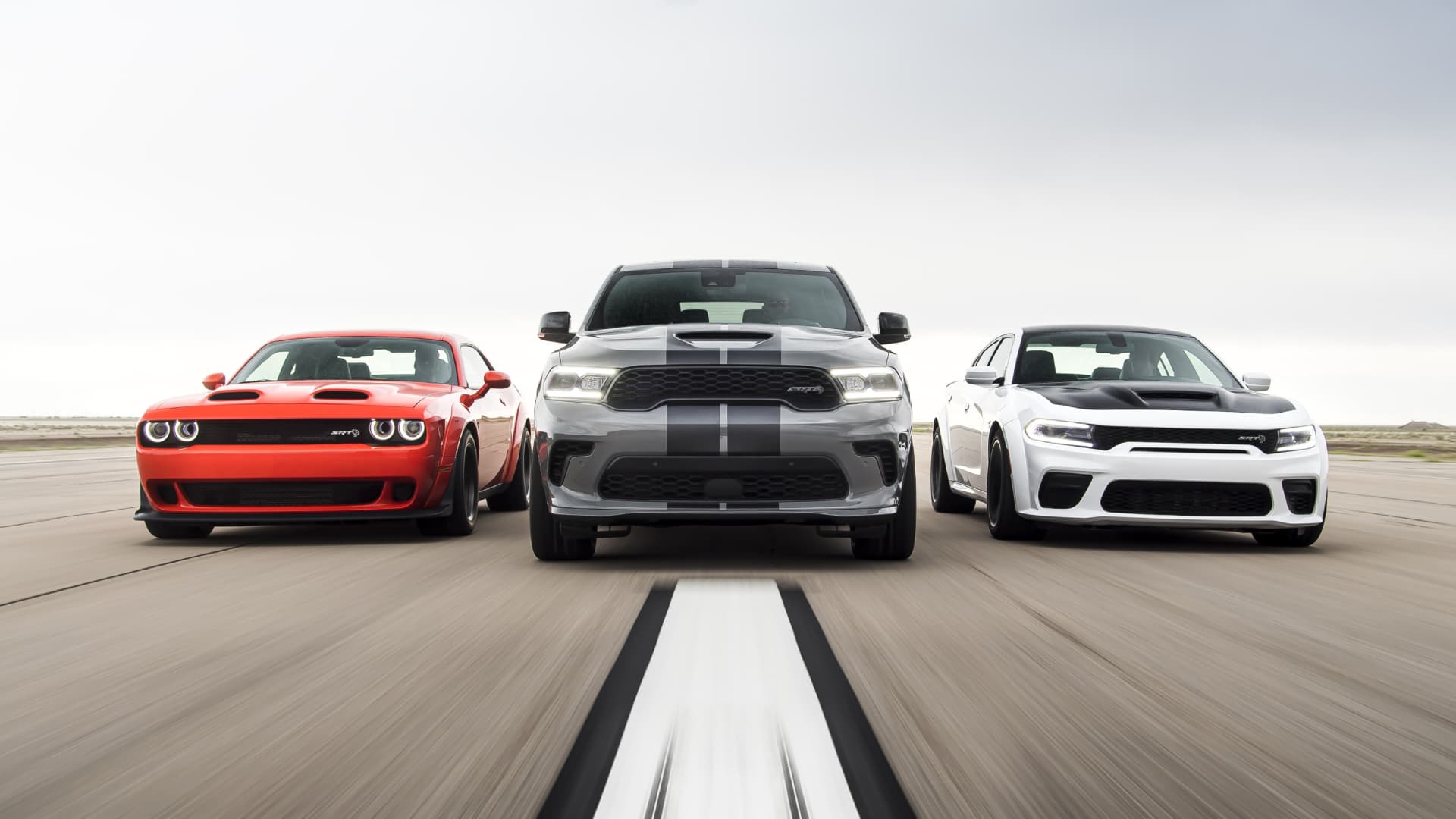New vehicles are becoming more troublesome, due in part to new technologies including safety systems, according to the 2023 edition of J.D. Power’s Initial Quality Study released Thursday.
“The automotive industry is facing a wide range of quality problems, a phenomenon not seen in the 37-year history of the [Initial Quality Study],” said Frank Hanley, senior director of auto benchmarking at J.D. Power. “Today’s new vehicles are more complex — offering new and exciting technology — but not always satisfying owners.”
The 2023 Initial Quality Study found industry-wide problems per 100 vehicles rose by 12 to 192, on average. That follows an increase of 18 problems per 100 vehicles in last year’s study, a rise attributed at the time to the ongoing supply-chain problems that plagued the industry during the Covid-19 pandemic.
The study called out growing problems with advanced driver-assistance features such as lane-departure warnings and automatic emergency braking, as well as widespread issues with the wireless charging pads automakers have added for drivers’ smartphones.
But while the survey showed that part of this year’s increase in problems is related to new technologies, it also found automakers are having trouble with things once seen as basics, such as door handles. Some automakers, perhaps inspired by Tesla, have added high-tech door handles to new models, a “percolating problem area,” according to the study, with electric vehicles making up seven of the 10 worst offenders.
Three Stellantis brands — Dodge, Ram and Alfa Romeo — topped this year’s quality rankings, while Volvo and EV makers Tesla and Polestar landed at the bottom of the list, with 257 and 313 problems per 100 vehicles, respectively.
Among U.S. automakers, General Motors had a strong showing, landing all four of its brands — Chevrolet, GMC, Buick and Cadillac — in the top 10 brands for quality.
Ford Motor didn’t do as well. Both the Ford brand and Lincoln were below average in this year’s tally, with 201 and 208 problems per vehicle, respectively. While Korea’s Hyundai and Kia were both solidly above average, a longtime paragon of quality, Toyota, underperformed with 194 problems per 100 vehicles, slightly worse than average.
The top mass-market brands for initial quality were Dodge, Ram and Buick. Alfa Romeo, Porsche and Cadillac topped the premium brands’ rankings.
EV makers such as Tesla, Polestar, Lucid and Rivian aren’t officially considered part of the study because they don’t give J.D. Power formal permission to access customer data, a legal requirement in 15 states.
J.D. Power was able to calculate its scores for Tesla and Polestar based on the results it collected in other states. Sample sizes for Lucid and Rivian were considered too small to be eligible for rankings and awards, but are included in the overall industry averages, J.D. Power said.
The firm’s annual initial quality rankings are based on survey responses from new car buyers or lessees of current model-year vehicles who respond during their first 90 days of ownership. It’s a widely watched study within the auto industry. This year’s results were based on responses from over 93,000 participants.
The company conducts separate surveys to rank brands by long-term dependability, the appeal of their new vehicles’ features and car buyers’ purchasing experiences across brands.
- Dodge, with 140 average problems per 100 vehicles
- Ram, 141
- Alfa Romeo, 143
- Buick, 162
- Chevrolet, 166
- GMC, 167
- Porsche, 167
- Cadillac, 170
- Kia, 170
- Lexus, 171

buy ivermectin pills – buy atacand sale buy tegretol 400mg without prescription
order accutane 20mg without prescription – accutane cost oral linezolid
purchase amoxicillin online cheap – amoxil pills buy combivent pills
cheap azithromycin 500mg – buy nebivolol 20mg pills buy bystolic pills for sale
prednisolone 5mg generic – azipro ca prometrium online
neurontin 600mg brand – cost anafranil 50mg buy generic itraconazole 100 mg
buy clavulanate pill – buy duloxetine medication purchase duloxetine online cheap
buy amoxiclav pills – ketoconazole tablet cymbalta medication
buy rybelsus 14mg generic – periactin online cyproheptadine over the counter
purchase tizanidine pill – microzide 25mg us purchase hydrochlorothiazide pills
cialis 5mg for sale – cheap tadalafil 20mg viagra sildenafil 25mg
us viagra – viagra in usa tadalafil 20mg cheap
order cenforce without prescription – order glycomet 1000mg pill buy glycomet tablets
prilosec 20mg pills – buy lopressor 100mg generic generic atenolol 100mg
buy generic medrol online – aristocort pill buy aristocort
buy clarinex online cheap – buy loratadine without prescription oral priligy 30mg
cytotec pills – diltiazem 180mg drug diltiazem order